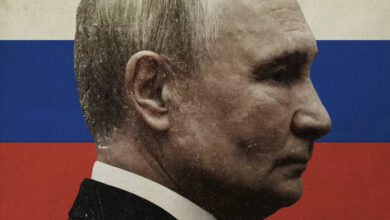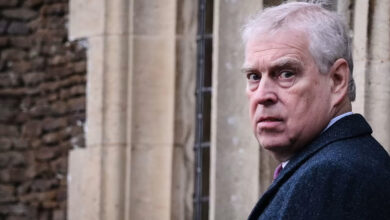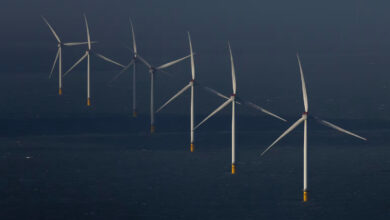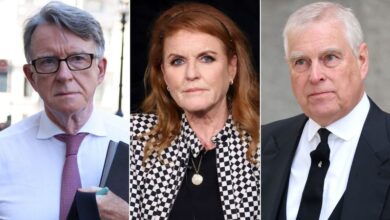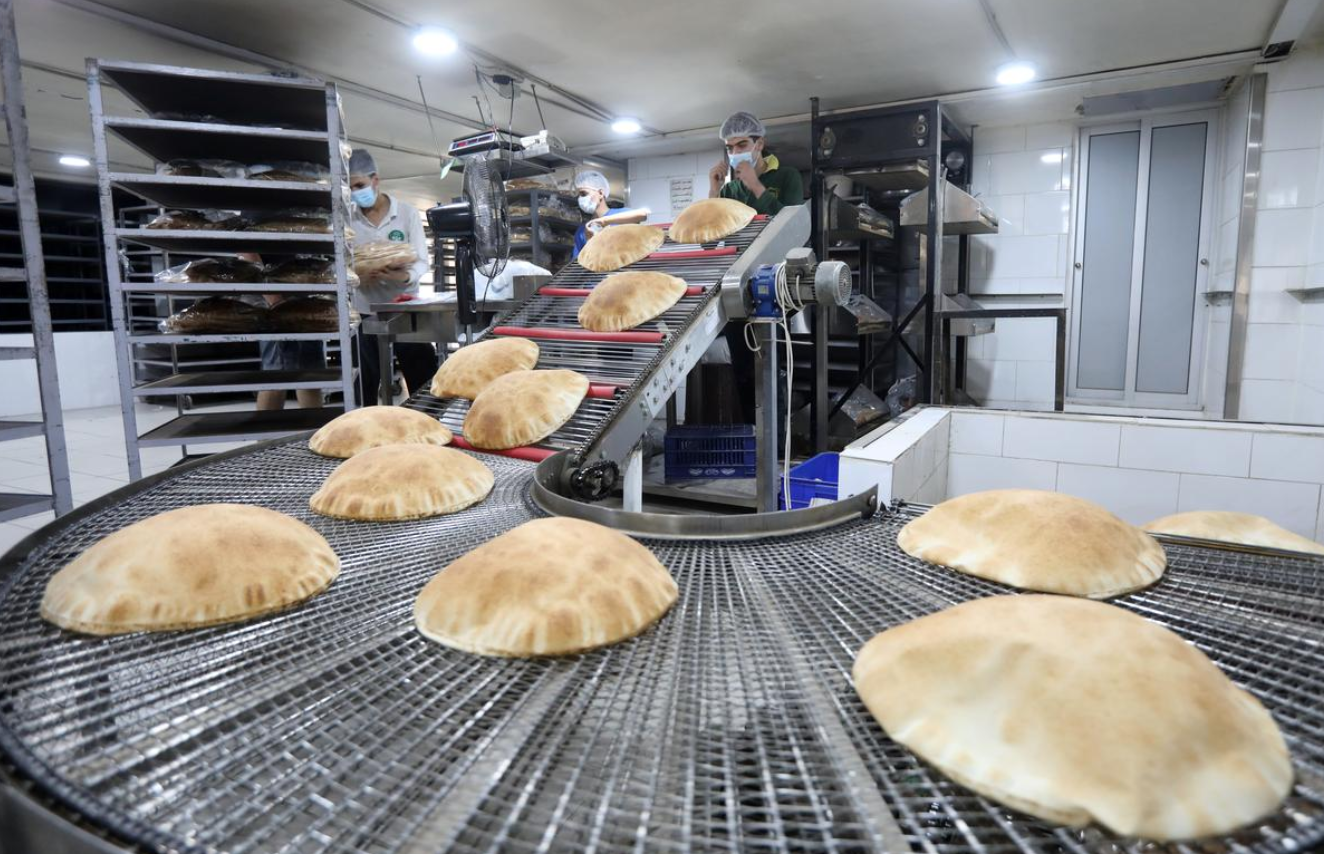
On my final approach to Oslo airport, I looked out the window and beheld a welcoming vision: a sunny blue sky framing the outlines of a green and beautiful city. Arriving from London, we walked right through the airport to the waiting car.
Oslo unfolded enjoyably during the hour’s drive to our hotel.
My wife Gigi and I came to Norway for a special pre-inauguration visit to the Nasjonalmuseet (Norway’s National Museum), which exhibits the country’s biggest collection of art, architecture, and design.
We had visited Oslo 15 years earlier, and it became clear that many positive changes had occurred since then. The roads were clearly aligned and marked, green surfaces were abundant and manicured.
Oslo felt like Switzerland but with an apparent Viking twist.
Gigi and I scheduled two days before the private tour of the National Museum in order to visit the Opera House, designed by the same architect behind the Library of Alexandria, and to browse the Munch Museum. Immediately we sensed the Norwegians’ warmth and hospitality. Except for departure day, when we felt a coldness from airport officials, the trip fulfilled its promise.
Perhaps, I wondered, they did not want us to leave.
Sadly, no. It was a moment of irrational chill, one which seems to be spreading across the globe.
Fourteen guests from nine countries comprised the tour. We experienced sheer beauty, gained deep learning and insight, and felt the Norwegians’ cultural pride.
The tour ended with the Norwegian sparkling tea served with smoked salmon, a tier of cakes, and sandwiches.
As usual in such special events, the group broke into smaller clusters. We shared a rectangular table with Franco Ferreira, an Italian energy trader; Betsy Richards, an American economist; Katy Williams, a British private banker; Fouad Marzouki, an Emirati businessman; and Nicos Galanis, a Greek shipping magnate.
As Gigi and Katy poured tea and I passed sandwiches, we discussed what we had seen at the National Museum and gave our impressions of Norway.
Shifting in her seat toward me, Katy began: “Shafik, bread is key in Egypt’s food chain. What will Egypt do with the ongoing war in Ukraine and no wheat shipments?”
Her look showed serious concern.
Katy had visited Egypt several times, her bank having long historical relations with Egypt. As I described the overall status of the Egyptian economy and the wheat predicament, a sense of quiet overtook the table.
Franco broke the silence: “The war in Ukraine and the wheat blockade are not only Egypt’s problem, but a major structural disruption of heavy economic cost to many countries.”
Betsy, finishing a piece of carrot cake and taking a sip of tea, nodded. Franco stood and, dressed in a tight Italian suit with a maroon tie, waved to a server and ordered an espresso. He beckoned again for others to join him. I did.
Nicos looked across the table and in a clear Greek accent declared: “Matters are much worse than just the war in Ukraine, which everyone seems to be voting to escalate. The ramifications are huge, and they are not all clear to the world. Supply chains are disrupted, shipping by truck, train, and sea are in disarray, fuelling higher costs and inflation.”
Betsy, on her second salmon sandwich, closely followed Nicos’s comments. Between bites, she exclaimed: “It is much worse! Even Jamie Dimon” — she was referring to JP Morgan’s CEO — “has warned of no less than a catastrophic market hurricane.”
Fouad, sitting quietly without touching any drinks or food, put his elbows on the table, peered across to the group, and described a forthcoming storm of volatility, market bottlenecks, inflation, energy, and food prices causing social unrest and bankruptcies.
Franco, sipping his espresso, looked at Betsy and said pointedly: “Everyone is at the doorstep of a recession.”
Added Fouad: “Yes, and America’s economy contracted in the first quarter and corporate earnings are falling.”
Gigi, listening intently, asked if the picture was as pessimistic as everyone describes, adding that here in Norway, the people have no sense of what everyone was talking about.
Katy responded that, sadly, with the war in Ukraine, policy tightening by the US Federal Reserve, recession in Europe, plus everything that Fouad mentioned, the picture looks dark indeed.
I looked at Gigi.
“We are faced,” I said, “with a most complex dynamic environment, regrettably of our own making. After the height of the pandemic and the world’s failure to manage the virus professionally, we have allowed an unnecessary war to take hold.”
Suddenly, a tall gentleman in a double-breasted grey suit, a navy, crescent-accented tie, and dark brown brogues approached the table. “Hi y’all!” he greeted us and hugged Betsy.
He was Harry Frum, a Texan and the head of a conservative think tank.
We made space for Harry next to Betsy, who briefed him on our conversation. He turned to the group. “Whilst Putin needs to be taught a lesson and pushed back,” he insisted, “The momentum and euphoria of escalating the war against Russia to the last Ukrainian soldier is dissipating.
“When the war began it helped Biden’s approval rating, it saved Boris Johnson from Partygate, and it gave the EU a false sense of unity.”
Franco looked stern: “Putin may be an autocratic leader who had no right to invade Ukraine, but two more facts cannot be denied. First, you can’t have NATO missiles in Ukraine pointed at Moscow. Second, this united front against Russia will disintegrate very soon as local politics take over US-led policy. Soon the American, British, and European public will focus on their higher bills, worsening economic conditions, and local politics and challenges.”
I listened carefully and began: “It seems my wife Gigi’s comment about pessimism and dark clouds gathering is true. History is the interaction of complex systems, and, whilst globalization brought the world together, the ongoing deglobalization will be very costly.”
“It is true,” confirmed Katy. “Deglobalization and sanctions are not pointed politics with accurate objectives. What is best is the recognition of their limitations and having realistic objectives.”
Fouad turned cynical, proposing that, given how the war was instigated, the embargo on Russian crude will shake the EU.
Considering how Finland and Sweden have bowed to US pressure to join NATO given the social impact of emerging economies, the bankruptcies, and the cost of debt financing — the present wisdom is to short the markets.
Katy sighed: “You’re right, but what worries me most is civil unrest and more human suffering caused by higher food and energy prices, runaway inflation. Not only in emerging economies, but also in America the price bite is being felt. Did you hear Senator Rand Paul admonishing against giving Ukraine over $40 billion and forgetting local challenges? Even we in Britain are complaining – electricity prices jumping, and, worse for Londoners, the price of a pint has hit eight pounds. This represents a 70 percent price hike.”
Katy reminded us that the sharp rises in the cost of grain, not only wheat and bread, will have a multiplying impact.
Franco added: “The US will survive the debacle and become a winner, and the Gulf will benefit with the oil prices, but these developments will bring the world to a rocky period that can make the 2008 crisis look like a walk in the park.”
“Don’t forget the defense industry, which always smiles when wars erupt,” said Fouad.
We had a flight to catch. The group exchanged contacts, promising to remain in touch. Shaking my hand, Harry asked in a voice louder than usual: “What do you think?”
I paused, then answered: “We are sleepwalking towards the abyss. The question that remains is, will we see it ahead and retreat safely, or will we pay the price?”
Bio of M. Shafik Gabr:
M. Shafik Gabr is a renowned leader in international business, innovation, investment and one of the world’s premier collectors of Orientalist art, and an accomplished philanthropist.
During his career, Gabr established over 25 companies plus three investment holding companies including ARTOC Group for Investment and Development which, established in 1971, is a multi-disciplined investment holding company with businesses in infrastructure, automotive, engineering, construction and real estate, over the past three years focusing on investment in technology and artificial intelligence.
Gabr is the Chairman and a founding member of Egypt’s International Economic Forum, a member of the International Business Council of the World Economic Forum, a Board Member of Stanhope Capital, an International Chairman of the Sadat Congressional Gold Medal Committee, and a Member of the Parliamentary Intelligence Security Forum. Gabr is a Member of the Metropolitan Museum’s International Council and serves on the Advisory Board of the Center for Financial Stability, the Advisory Board of The Middle East Institute, and the Global Advisory Council of the Mayo Clinic.
Through the Shafik Gabr Social Development Foundation, Gabr is helping to improve elementary-school education in Egypt, introducing students to arts and culture and promoting sports and physical fitness for youth. The Foundation has its first Medical and Social Development Center in Mokattam, Cairo, offering free medical and health services. In 2012 Gabr established in the US the Shafik Gabr Foundation which supports educational and medical initiatives plus launched in November 2012 the ‘East-West: The Art of Dialogue initiative promoting exchanges between the US and Egypt with the purpose of cultural dialogue and bridge-building.
Gabr holds a BA in Economics and Management from the American University in Cairo and an MA in Economics from the University of London.

